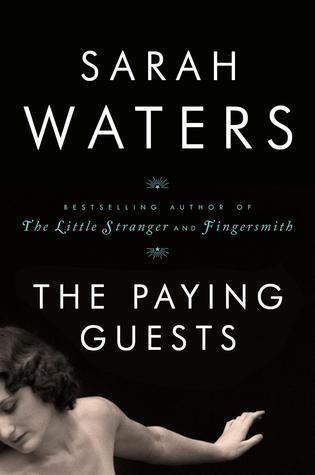 Welcome to British Isles Friday! British Isles Friday is a weekly event for sharing all things British and Irish - reviews, photos, opinions, trip reports, guides, links, resources, personal stories, interviews, and research posts. Join us each Friday to link your British and Irish themed content and to see what others have to share. The link list is at the bottom of this post. Pour a cup of tea or lift a pint and join our link party!
Welcome to British Isles Friday! British Isles Friday is a weekly event for sharing all things British and Irish - reviews, photos, opinions, trip reports, guides, links, resources, personal stories, interviews, and research posts. Join us each Friday to link your British and Irish themed content and to see what others have to share. The link list is at the bottom of this post. Pour a cup of tea or lift a pint and join our link party!
Last week, I reviewed A Pin to See the Peep Show by F. Tennyson Jesse. Davida reviewed the book Cranford by Elizabeth Gaskell, a hit when it was published in installments in 1853 and still rewarding for the modern reader. Tina highlighted a number of books by British authors in her Sunday Salon post, including a quick review of The Secret Book of Flora Lea by Patti Callahan Henry about the evacuation of London youngsters during World War II.
UK News. If you're trying to figure out how the UK could change Prime Ministers from a Thursday to a Monday, this video from TLDR News is a swift and amusing explanation.
Meanwhile, back to my previously scheduled book review.
Source: audiobook and e-book borrowed from the library

Neither Frances nor Mrs. Wray could have predicted the upheaval of their lives caused by the arrival of Mr. Barber and his young wife.
Thoughts: This is the third novel this month that is inspired by the Edith Thompson and Frederick Bywaters case from 100 years ago. The Paying Guests, however, is very loosely inspired. The first obvious difference was that the love triangle in this story includes a love affair between the wife and another woman. But pretty much anytime that I thought I knew where this story was going based on my knowledge of the Thompson/Bywaters case, I was wrong. So, I just gave up and enjoyed the ride.
This is the first time that I've read a book using both the audio and e-book versions. The audiobook is terrific, but I read e-books more quickly and I really wanted to see where this story was going. I read to myself in the voice of the narrator of the audiobook. Does that happen to other people? I liked having both versions. I was able to switch back and forth - listening to audio while walking and driving and reading the e-book everywhere else. I may try this method the next time that I have a chunky book that I want to read.

Challenges: The Paying Guests is set in 1922 in London, so it suits the Historical Fiction Reading Challenge. The verisimilitude is excellent throughout - I think what I'll remember most is what it felt like to be at a roller-skating rink in 1922.
This book also qualifies for my other challenge this year, the Diversity Reading Challenge, since the author identifies as lesbian, and the main character has a same sex relationship. I challenged myself to read five books for this challenge and this is my eighth.
Have you read this book? What did you think?

In September, I enjoyed exploring Agatha Christie to celebrate her 132nd birthday on September 15. Here's what I wrote about:
In October, I focused on the 100th anniversary of the Edith Thompson / Frederick Bywaters case that caused a sensation in the last few months of 1922 in London. I learned about the facts in two 21st-century TV documentaries. Then, I read three novels that were inspired by that case:
That was my RIPXVII. How was yours?


About Joy Weese Moll
a librarian writing about books
